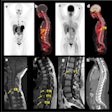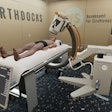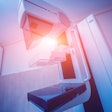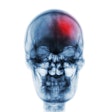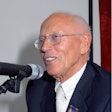
LONDON (Reuters), Jul 18 - When Austin Hymas got his first chance to dissect a full human body, he had to share it with five fellow trainee doctors.
The 19-year-old first-year medical student says he was fascinated by what he was able to do and see, but worries he will never get enough time to dissect properly and learn the intricacies of a full human cadaver.
"Dissection in medical schools has been cut dramatically," Hymas told Reuters in an interview. "We have only done four weeks of dissection in the whole year, whereas only 10 years ago, they probably would have done a whole term on each limb."
Many medical schools in Britain now use pro-sections -- prepared body part samples which have been predissected by a tutor and which the students are allowed to examine. Increasingly few get hands-on experience of proper dissection.
The problem, in part, is that there simply aren't enough bodies to go around.
According to medical authorities, Britain needs around 1,000 bodies a year for use in training medical students and conducting scientific research.
In London alone, which has been the hardest hit by the lack of body donations, experts are forecasting a shortfall of around 40% in the number of bodies needed by the capital's five medical schools and the Royal College of Surgeons (RCS).
Vishy Mahadevan, professor of surgical anatomy at the RCS, which teaches specialized postgraduate courses for those wishing to become surgeons, says his school currently has to "get by" with 60 to 65 bodies a year.
"Ideally we could do with 90 bodies per year," he told Reuters. "We would love to have more bodies, but we are having to adapt our workshops and courses to what is available."
Diana Lawrence-Watt, professor of human anatomy at Brighton and Sussex Medical School in southern England, fears student doctors are losing out on crucial hands-on learning.
She admits that in her department teachers often preprepare dissection samples, for example removing the skin "to save time and let them get down to the nitty-gritty quite quickly."
No substitute
"But in my mind, there is absolutely no substitute for the students getting into the thorax and abdomen themselves so that they can see all the relationships and structures of the organs," she adds.
Some experts suspect that new laws which came into force last year on the donation of organs and bodies may have had a damaging impact on the number of Britons willing to bequeath themselves to medical science after death.
The Human Tissue Act was brought into force after a gruesome scandal at Liverpool's Alder Hey Hospital in northern England in which hundreds of organs were removed from dead babies without their parents' consent between 1988 and 1996.
Britain's chief medical officer expressed alarm this week at the sharp decline in the number of organs being donated for transplant and suggested Britain should adopt a "presumed consent" system under which organs could be used from anyone who did not expressly opt out.
But anyone wishing to donate their body in Britain needs to give active written and witnessed consent -- and critics say little is done to tell people how valuable a gift a body can be.
"The bodies that are donated for medical study are usually in the over-65 age group -- we're talking about 75, 80, 90 years old -- and of course they are still very useful. The function of the organs may change with age and they are therefore no longer useful for transplants -- but their structure and layout does not change at all," says Mahadevan.
"You can't advertise on television -- that would be inappropriate -- but we need a constant and gentle campaign to inform people that this is a very noble way of dealing with your body after death."
Both Mahadevan and Lawrence-Watt are eager to stress that a return to the old days, when every student doctor had ample opportunity and time to dissect a human cadaver before leaving medical school, is neither necessary nor desirable.
"I would be the first to say that for every student to dissect a body is old hat," says Mahadevan. "Yes, it was the done thing maybe 20 years ago, but now those days are gone."
It is now felt that medical students do not need to go into so much detail until they specialize.
But the prospect of a doctors making their first ever incision into a whole body on a live patient on an operating table is one that worries experts, students and patients alike.
"Obviously everyone wants to do their job as well as they can, and if this is going to prevent me from doing that then it's a big worry," says Hymas.
By Kate Kelland
Last Updated: 2007-07-17 13:01:17 -0400 (Reuters Health)
Related Reading
Cold case closed: CT solves iceman's cause of death, July 4, 2007
Copyright © 2007 Reuters Limited. All rights reserved. Republication or redistribution of Reuters content, including by framing or similar means, is expressly prohibited without the prior written consent of Reuters. Reuters shall not be liable for any errors or delays in the content, or for any actions taken in reliance thereon. Reuters and the Reuters sphere logo are registered trademarks and trademarks of the Reuters group of companies around the world.










